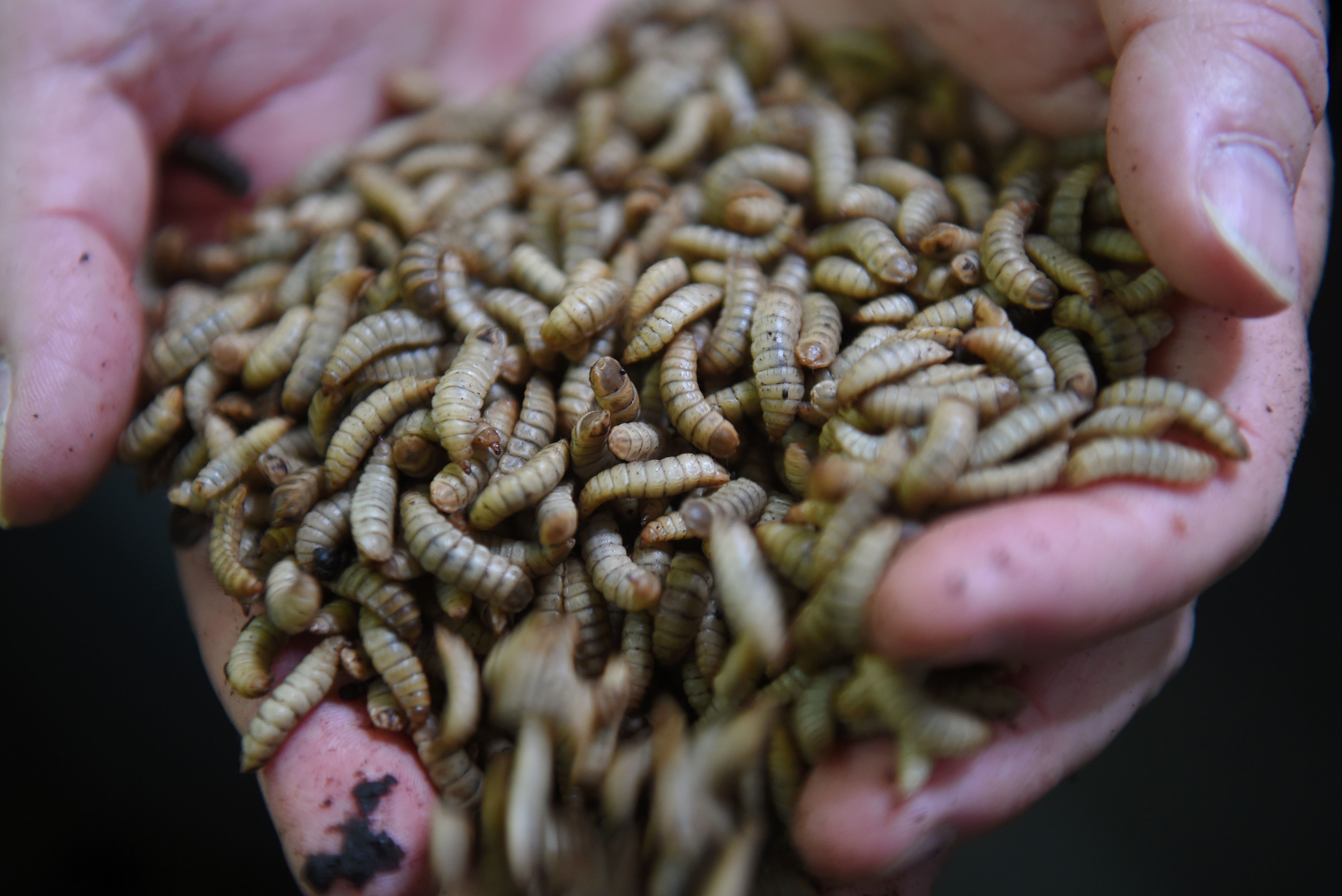Belgian Researchers Are Using Insect Fat in Baked Goods

Credit to Author: Jelisa Castrodale| Date: Mon, 17 Feb 2020 13:23:37 +0000
According to reptile breeders, black soldier fly larvae (Hermetia illucens) are one of the best things to feed bearded dragons, chameleons, geckos, and other cold-blooded pets, because they're high in essential nutrients, and can also be stored in the fridge for several weeks.
Gardeners and farmers have praised the larvae for what they're willing to eat, which is a disgusting assortment of carrion, garbage, manure, and mold. That less-than-discerning diet makes them helpful for waste reduction and pest control; after making quick work of a manure pile, the larvae's leftovers can be used as compost or processed into animal feed. And their ability to eat all that shit so quickly means that farms don't have to deal with the smell, or with pesky flies that might be attracted to it.
And now a group of researchers at a university in Belgium have suggested that those same insect larvae might also be a pretty good butter substitute in baked goods. For humans.
Ghent University scientists prepared three almost-identical versions of waffles, cookies, and cakes, and served them up to a group of 344 consumers in a blind taste test. For each baked good, there was a "normal" version made with butter; a version in which 25% of the butter had been replaced with black soldier fly larvae fat; and a version that was made with 50% butter, 50% insect fat. (The study participants were informed in advance that the samples they selected "might have contained an insect ingredient.")
According to the results, which were published in the journal Food Quality and Preference, most participants weren't put off at all by the flavor, texture, or appearance of the cookies and cakes that had been made with 25% insect fat. The individuals who ate the waffles also made positive comments about all three versions, including the 50-50 butter-and-insect-fat combination. (The researchers noted that in their own pre-tests, using more than 50% insect fat "noticeably influenced the sensory properties of the samples.")
"Insect fat is a different type of fat than butter” researcher Daylan Tzompa-Sosa said in a statement. “Insect fat contains lauric acid, which provides positive nutritional attributes since it is more digestible than butter. Moreover, lauric acid has an antibacterial, antimicrobial and antimycotic effect. This means that it is able, for example, to eliminate harmless various viruses, bacteria or even fungi in the body, allowing it to have a positive effect on health.”
Tzompa-Sosa has been researching the viability of using insects to replace butter, margarine, and other edible fats for several years. In 2016, she was part of a team at Wageningen University and Research Center in the Netherlands that turned mealworm fat into an oil that was similar to a combination of canola and soybean oils. "We're not allowed to eat it because it's made in a lab,” she told the Washington Post at the time. “It smells very mild … grassy. It's not bad."
Although the results of the baked good taste tests seem promising, it's still way too soon to add black soldier larvae fat to your Instacart order.
"Currently the price is still too high, because it is only produced on a small scale," Ghent University researcher Joachim Schouteten said. "We will have to investigate what consumers think on a larger scale."
And if humans ultimately don't go for it, then imagine the possibilities for that tiny bearded dragon bakery you've always wanted to open.
This article originally appeared on VICE US.